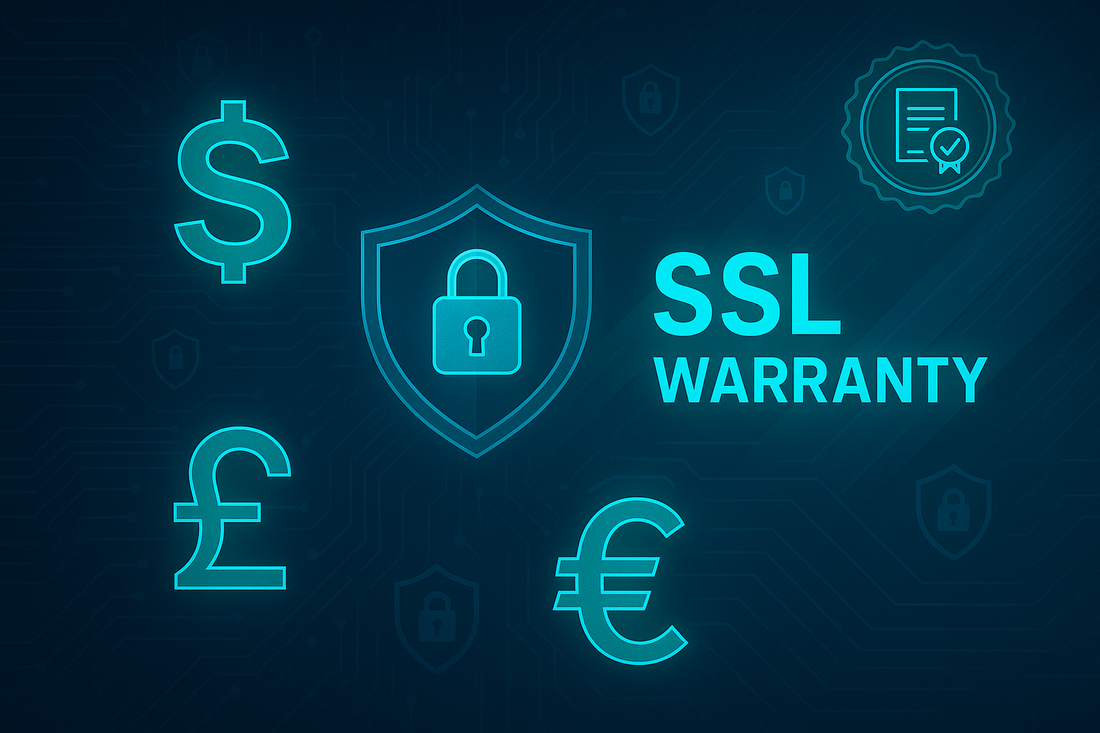
Learn About SSL Warranties and What They Protect You Against
Samantha ClarkShare
SSL Certificate warranties provide critical financial protection for businesses and organizations that rely on secure online transactions.
These warranties, offered by Certificate Authorities through providers like Trustico® serve as a form of insurance against specific types of security incidents related to SSL Certificate implementation.
Most commercial SSL Certificates include warranty coverage ranging from $10,000 to $1.75 million, depending on the SSL Certificate type and validation level.
Extended Validation SSL Certificates typically offer the highest warranty amounts, reflecting their enhanced security and strict validation requirements.
Understanding SSL Certificate Warranty Coverage
SSL Certificate warranties specifically protect against losses resulting from encryption failures, validation errors, or improper SSL Certificate issuance by the Certificate Authority.
These warranties become particularly relevant when SSL Certificate-related security issues lead to financial damages or data breaches.
The warranty coverage activates in scenarios where the Certificate Authority makes a material error in the validation process. This includes cases where an SSL Certificate is incorrectly issued to an unauthorized party, leading to potential man-in-the-middle attacks or data theft.
It is important to note that SSL Certificate warranties do not cover losses from internal security failures, compromised server environments, or improper SSL Certificate implementation by the SSL Certificate holder.
The warranty specifically addresses the Certificate Authority validation and issuance process.
Warranty Claim Requirements and Process
To successfully claim against an SSL Certificate warranty, organizations must demonstrate direct financial losses resulting from Certificate Authority errors.
This typically requires detailed documentation of the security incident, proof of financial impact, and evidence that the loss directly resulted from SSL Certificate-related issues.
Certificate Authorities maintain strict claim verification processes to ensure warranty payouts are legitimate. Organizations must typically report incidents within a specified timeframe and provide comprehensive security audit logs, financial records, and incident response documentation.
The warranty claim process often involves multiple stages of review, including technical analysis of the security incident, validation of financial losses, and verification that the incident falls within warranty coverage parameters.
Selecting Appropriate Warranty Coverage
When choosing an SSL Certificate, organizations should carefully evaluate their warranty requirements based on transaction volume, potential risk exposure, and compliance requirements.
Domain Validation SSL Certificates typically offer lower warranty amounts suitable for informational websites and basic encryption needs.
Organization Validation and Extended Validation SSL Certificates provide progressively higher warranty coverage, making them more appropriate for e-commerce platforms, financial institutions, and organizations handling sensitive customer data.
Trustico® offers SSL Certificates with various warranty levels to match different business needs and security requirements.
The warranty amount should align with the potential financial impact of a SSL Certificate-related security incident on your organization.
Warranty Limitations and Exclusions
SSL Certificate warranties include specific limitations and exclusions that organizations should understand.
Common exclusions include losses from malware infections, server compromises, or improper SSL Certificate installation by the SSL Certificate holder.
Warranties typically do not cover indirect losses, such as reputation damage or lost business opportunities.
The coverage specifically addresses direct financial losses resulting from Certificate Authority errors in the validation and issuance process.
Regular SSL Certificate maintenance, proper security practices, and timely renewal remain essential responsibilities of the SSL Certificate holder.
Following industry best practices for SSL Certificate management helps ensure continued warranty validity and overall security effectiveness.



